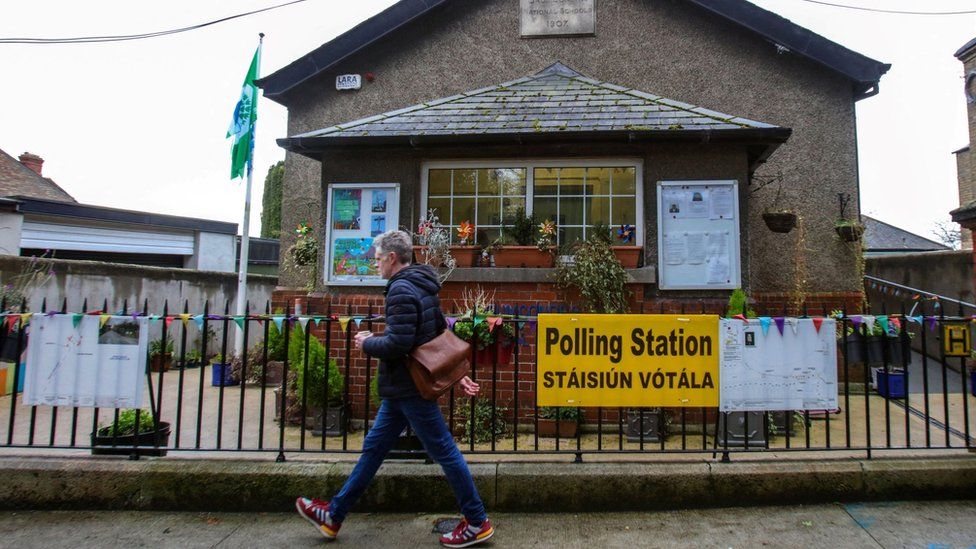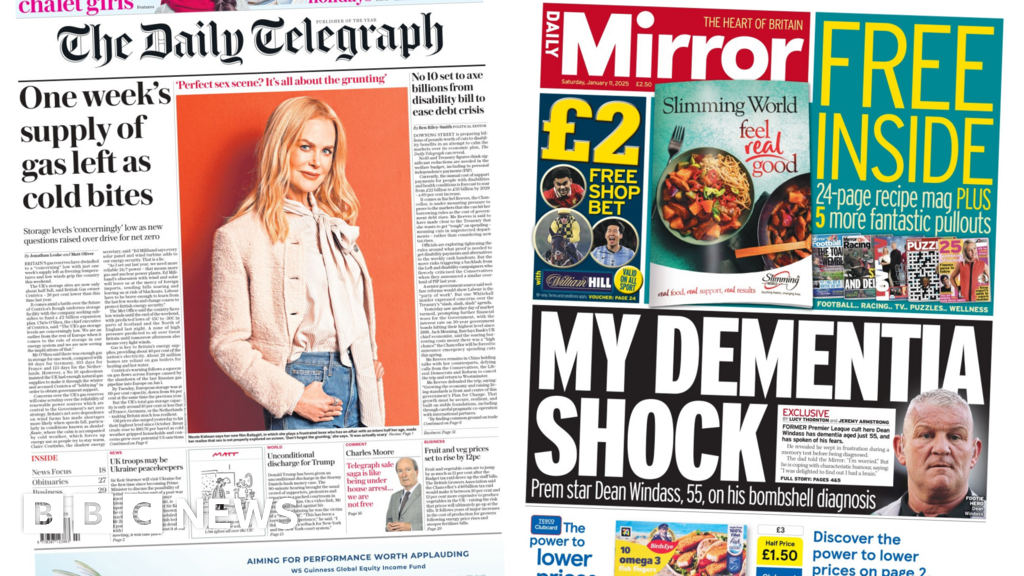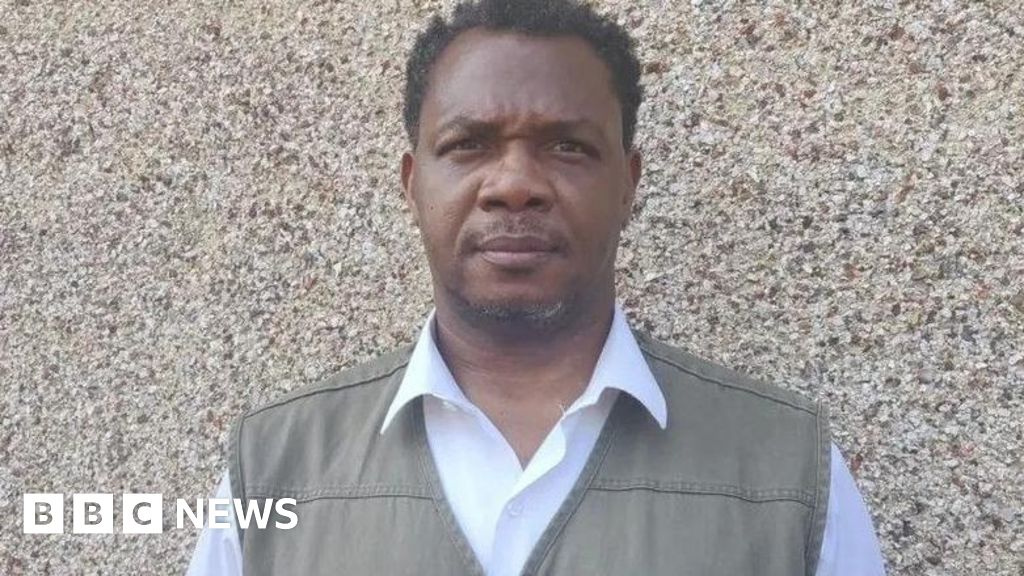 Image source, Paul Faith/AFP/Getty Images
Image source, Paul Faith/AFP/Getty Images
Results from Friday's referendum are expected to be announced later
Counting is set to begin later after two referendums were held on family and care in the Republic of Ireland.
The votes, held on International Women's Day, sought views on amending two parts of the Irish constitution.
One change could alter the definition of family to include families not based on marriage, while the other could remove reference to women in the home.
Counting will start at 09:00 local time with results expected a few hours later.
Those taking part in Friday's referendum were presented with two ballots - one white and one green - and were asked to vote yes (Tá) or no (Níl).
The Irish government, as well as Sinn Féin, Labour, the Social Democrats and People Before Profit, backed a Yes vote for both amendments.
However Aontú and other campaigners backed a No vote for either or both amendments, citing issues with wording and concerns over care, taxation and disability.
Those aged 18 or over and who ordinarily reside in Ireland, Irish citizens and those registered to vote were eligible.
What were voters asked about family?
The white ballot asked voters if they want to accept or reject the Thirty-Ninth Amendment of the Constitution Bill - otherwise known as the Family amendment.
The Irish constitution currently offers legal protections to the family unit, but ties the concept of family to the institution of marriage.
Image source, PA Media
Image caption,A Yes vote in both referendums would change the current Irish constitution which was first established in 1937
The amendment sought to expand the constitutional definition of family to include other "durable relationships" such as unmarried couples and single parent families.
Supporters of the amendment - including the Irish government - said the change would ensure that all family units were recognised equal in the constitution.
However, opponents argued the term "durable relationship" is unclear and could have unintended legal consequences.
What is the Care amendment?
The green ballot asked voters to accept or reject the Fortieth Amendment of the Constitution Bill - or the Care amendment.
Currently the Irish constitution - or Bunreacht na hÉireann - says mothers should not have to go out into the workplace to the neglect of their "duties in the home".
It also states that women's "life within the home" is a source of support to the state which is necessary for the "common good".
The amendment asked for both of these articles to be deleted and a new text to be added saying the state "shall strive to support" the provision of family-based care.
Image source, Paul Faith/AFP/Getty Images
Image caption,Disability rights groups like Equality Not Care have called for a No vote as they say the proposed wording is discriminatory
Yes campaigners argued the language around a woman's "life within the home" or a mother's "duties within the home" had no place in modern Irish society.
However, the proposed wording angered disability activists who were concerned the change would enshrine the idea that caring is mainly the responsibility of family members, and insisted the onus should instead be firmly on the state to look after all its citizens equally.
Groups, like the newly-established Equality Not Care, called for a No vote.
The official results from both referendums are expected to be announced later on Saturday.
 (1).png)
 10 months ago
16
10 months ago
16


















